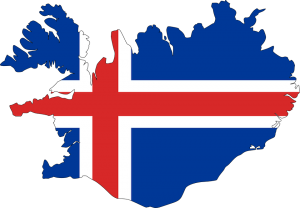Three Things That Set Icelandic Apart
By Sarah-Claire Jordan
 Iceland is known for glaciers, seasonal periods of total darkness and the opposite, and for a particularly eccentric musician. It isn’t a country that tends to come up in international news, as it has a fairly stable economy and hasn’t been involved in any huge international conflicts. Despite its rather low profile, it has started to pique the interest of travelers in recent history. Music junkies have probably come across some of the more popular bands and musicians who have come out of Iceland, and this sometimes leads to a genuine interest in the country and its culture. A huge part of Iceland’s culture is its language, Icelandic. Here are a few things about Icelandic that set it apart from a lot of other languages:
Iceland is known for glaciers, seasonal periods of total darkness and the opposite, and for a particularly eccentric musician. It isn’t a country that tends to come up in international news, as it has a fairly stable economy and hasn’t been involved in any huge international conflicts. Despite its rather low profile, it has started to pique the interest of travelers in recent history. Music junkies have probably come across some of the more popular bands and musicians who have come out of Iceland, and this sometimes leads to a genuine interest in the country and its culture. A huge part of Iceland’s culture is its language, Icelandic. Here are a few things about Icelandic that set it apart from a lot of other languages:
1. Icelandic hasn’t changed much since the 11th century
Besides some spelling and vocabulary changes, a speaker of modern Icelandic could easily read the original Icelandic sagas from over 800 years ago. Not many languages can claim that, as so many factors can cause a language to start on a path of evolution that sometimes leads to an estrangement from the original language. Of course, reading the sagas of this time period is difficult with the old spelling and vocabulary used, but if it is updated and written using modern spelling, anyone fluent in Icelandic can easily access a part of their language’s history. The main reason for this is the fact that many aspect of the grammar of Old Icelandic didn’t change as it evolved into Modern Icelandic.
2. It’s not uncommon for new words to be created
Though it didn’t truly start until the 18th century, Icelandic is known for its linguistic purism. What happened was educated people, many of the writers, decided it was in Iceland’s best interest to not use any foreign loanwords anymore. Thus began a systematic culling of the Icelandic language, which left some holes that needed to be filled with new words. Some words were revived from Old Norse with some alterations, while others were invented. This means that every single word in Icelandic probably has its origins in either Old Norse or some other ancestor of Icelandic or in Icelandic itself.
3. There are no recognized dialects of Icelandic
Iceland was settled around the 9th century mostly by people from the British Isles as well as the west of Norway. There were obviously some differences in what each settler spoke at first, but this soon smoothed out and became Old Icelandic, which then evolved into Modern Icelandic. Today, there is very little variation between regions of Iceland in terms of how they speak Icelandic. There may be a few pronunciation changes here and there, but since the whole country isn’t very large and is a bit isolated from the rest of the world, Icelandic is generally a very unchanging language. Other factors that may have contributed to the Icelandic language’s apparent lack of recognized dialects include the fact that many people would travel regularly to different parts of Iceland and the strong emphasis on Icelandic literature.
For an overview of our translation expertise, visit our technical translation service page.
Category: Foreign Language








